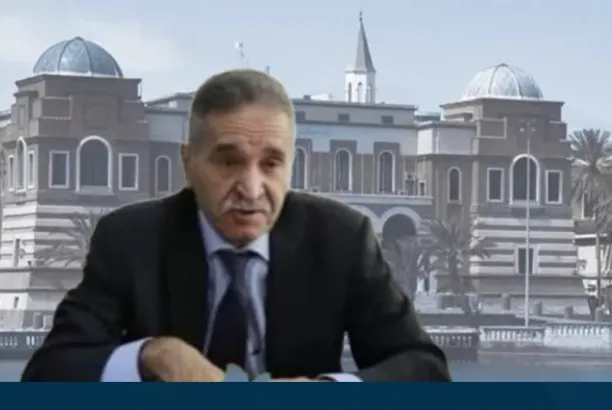
| News
Al-Haddad: These Are the Reasons Behind the U.S. Federal Reserve’s Suspension of Dealings with the Central Bank of Libya
Banking expert Ibrahim Al-Haddad stated in a post on his official page that the Central Bank of Libya has lost its status and credibility, as he described it. He attributed the U.S. Federal Reserve’s suspension of dealings with the Central Bank of Libya until an international auditing firm is assigned to review the bank to a complete lack of transparency and disclosure, which raised concerns about the bank’s condition. He also pointed to the inaccuracy of the bank’s financial statements, balance sheets, and financial positions, along with contradictions in the announced data, information, and statistics.
In his post, Al-Haddad added: “There is ambiguity regarding Libya’s foreign currency reserves abroad and fears surrounding them, especially after Al-Kabeer’s statement that they amount to $29 billion instead of the $84 billion reported in the International Monetary Fund’s report. Deloitte’s internationally commissioned financial audit reports have revealed very serious violations, breaches, and substantial risks in the bank’s procedures and operations.”
Al-Haddad further noted: “Deloitte and the Organized Crime and Corruption Reporting Project (OCCRP) disclosed suspicious practices involving significant manipulation in amending the contract between the bank and the British company De La Rue for printing currency. This resulted in massive losses amounting to $4.8 billion, or 6.5 billion Libyan dinars. Additionally, Libyan currency was unlawfully printed in Russia by the company Goznak at a very high cost of $6 per banknote, whereas the global standard at the time was between 4 to 13 cents per note. Furthermore, Deloitte’s report was concealed by Al-Kabeer and Al-Hibri, allegedly to preserve their positions and hide their corrupt practices.”
He also pointed out: “A report by the World Gold Council revealed the disappearance of 27.18 tons of Libya’s gold reserves held at the Central Bank in 2014. The bank failed to announce this reduction, as the reserves dropped from 143.82 tons to 116.64 tons. The IMF noted that the Central Bank recently purchased 30 tons of gold, which was considered an attempt to obscure previous facts and events. Additionally, Global disclosed suspicions of corruption and money laundering related to foreign credits and transfers exclusively directed by Al-Kabeer to ABC Bank in London.”
Al-Haddad concluded his post, stating: “Meetings held by former Governor Al-Kabeer and the current Acting Governor with ambassadors from various countries, where they disclosed secrets and information about the bank and the state’s condition, as well as meetings with international organizations, the U.S. Federal Reserve, and the U.S. Treasury in Tunisia, revealed the unstable situation of the Central Bank. These meetings confirmed the inefficiency, inexperience, and inability of the Acting Governor and his deputy to manage the bank’s affairs effectively, leading to the U.S. Treasury’s support for the Federal Reserve’s aforementioned measures.”





